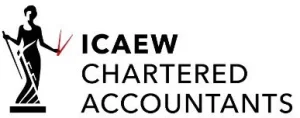The Construction Industry Scheme (CIS) can be challenging for both contractors and subcontractors. Whether you need assistance with registration, deductions, or submitting your CIS returns, our expert team of chartered accountants is here to make the process simple and efficient.
The Construction Industry Scheme (CIS) is a regulatory framework set up by HMRC to oversee tax deductions from subcontractors’ payments in the construction sector. Whether you’re a contractor or subcontractor, navigating the scheme can be complex. Our expert CIS services ensure your compliance and streamline the process, saving you time and avoiding costly penalties.
We offer comprehensive support for all aspects of the Construction Industry Scheme:
▫️Assistance with HMRC registration for contractors and subcontractors.
▫️Ensuring you're set up correctly to avoid delays or fines
▫️Prepare and file your monthly CIS returns accurately and on time
▫️Assist subcontractors claim back overpaid deductions.
▫️Assist contractors with adjusting overpayments.
▫️Comprehensive reviews to ensure your business meets HMRC's requirements.
▫️Tailored advice to reduce risks and maximise tax efficiency.
▫️Support with HMRC disputes, appeals, and penalty mitigation.
Our Construction Industry Scheme experts are ready to give you the needed support. Get in touch with us today for a free consultation.
With extensive experience in Accountancy, UK Tax services and Business Advisory, our team is well-versed in all aspects of compliance and tax-saving opportunities. We keep up with the latest tax regulations, ensuring you always receive accurate, strategic advice tailored to your specific circumstances.
At HHM, we value integrity and transparency, and our clients trust us to act in their best interests. We’re more than just Chartered Accountants—we’re an extension of your team, here to support you at every step.
Success isn’t just about the present; it’s about planning for the future. Our proactive approach to accounting and tax planning means we identify opportunities and anticipate challenges before they arise, helping you make the most of your investments over the long term.
We know every client’s needs are different. By getting to know you and your financial goals, we provide advice that’s as unique as you are. From tailored tax planning to ongoing support, we’re dedicated to helping you make confident, informed decisions.

Save time and reduce stress with our precise bookkeeping, payroll, online accounting, end of year reporting, and management accounting solutions tailored to your needs.
File with confidence and avoid costly errors. Our tax experts handle self assessment and taxes on income from all sources including foreign income, capital gains, inheritance, and self-employment, making tax season stress-free.
Protect your business and maximise your profitability with comprehensive tax services, including corporation tax, CIS and VAT. We support you to stay compliant and maximise savings.
Gain peace of mind with professional support during HMRC compliance checks. We manage the process for you, minimising risk and stress.
Stay compliant and future-ready with VAT and Making Tax Digital support that’s easy, accurate, and ensures no deadlines are missed.
Keep more of what you earn with proactive tax planning strategies that optimise your finances and reduce your tax burden.

EXCELLENT Based on 44 reviews
Based on 44 reviews

 Dulan Mayan2025-07-10
Dulan Mayan2025-07-10Trustindex verifies that the original source of the review is Google.
Excellent advice on property tax from the team at HHM. They’ve helped me with rental income, capital gains and VAT on serviced accommodation. Really know the property sector inside out.
 amir farsaloon2025-06-29
amir farsaloon2025-06-29Trustindex verifies that the original source of the review is Google.
Amazing tax planning, thank you Daniel
 Waheed Hussain2025-06-28
Waheed Hussain2025-06-28Trustindex verifies that the original source of the review is Google.
Brilliant accountants for anyone dealing with HMRC worldwide disclosure. They really know their stuff when it comes to overseas tax matters. Highly recommend HHM for international tax issues.
 IntenXive2025-06-28
IntenXive2025-06-28Trustindex verifies that the original source of the review is Google.
We’ve used HHM for mortgage advice, property development finance and tax planning across our HMO portfolio. They achieved results even when other brokers told us it couldn’t be done. Professional, reliable and always on hand to support – highly recommend to any serious property investor.
 24s. ma2025-06-28
24s. ma2025-06-28Trustindex verifies that the original source of the review is Google.
HHM are fantastic if you’re a foreign investor looking for mortgage and tax guidance in the UK. Clear advice, fast service and they really understand cross-border finance.
 Tasnim2025-06-24
Tasnim2025-06-24Trustindex verifies that the original source of the review is Google.
Daniel, Aaron and Karam have been great!
 Karo S2025-06-16
Karo S2025-06-16Trustindex verifies that the original source of the review is Google.
Very expensive for little value and basic advice. Thought the premium price would be justified by well researched, thorough advice but this was not the case. Would recommend looking for a different accountant, especially when dealing with remittance/foreign income.
 Vista Property Team2025-05-21
Vista Property Team2025-05-21Trustindex verifies that the original source of the review is Google.
We have had a fantastic experience! Always reliable, professional, and friendly, truly goes above and beyond every time. The attention to detail and commitment to providing top-notch service really stands out. Highly recommend to anyone looking for quality and consistency. You won’t be disappointed!
 Scott Moore2025-05-02
Scott Moore2025-05-02Trustindex verifies that the original source of the review is Google.
Daniel followed up with a phone call very quickly after I completed an online request for info. He showed confidence that my tax position was clear (from an HMRC perspective) and offered services for the future.
 Laugh2025-04-28
Laugh2025-04-28Trustindex verifies that the original source of the review is Google.
Amazing service
Contractors must register for the Construction Industry Scheme (CIS) with HMRC. Subcontractors are not required to register, but if they do not, tax will be deducted at a higher rate, typically 30%, instead of the standard 20% for registered subcontractors.
To register for the Construction Industry Scheme, visit the HMRC website and complete the registration process either online or via post. You will need to provide details about your business, including its structure, UTR (Unique Taxpayer Reference), and other relevant information.
Under CIS, contractors deduct money from payments made to subcontractors and send this directly to HMRC. The deduction is considered as advance payment towards the subcontractor’s tax and National Insurance.
To avoid penalties, ensure that your CIS return is submitted on time. If you receive a penalty, you can appeal it through your HMRC online account. It’s essential to keep records and show evidence of any reasonable causes for late submission. Contact a tax professional for expert support.
Yes, if you believe too much tax is deducted under CIS, subcontractors can claim a repayment from HMRC. You can apply for a refund through your self-assessment tax return or by contacting HMRC directly. Contact a professional for expert advise.
Privacy Policy
Legal Disclaimer
Copyright © 2025 kms Accountants All Rights Reserved. T/A HHM Accountants.
kms Accountants Ltd
Company number: 15050263